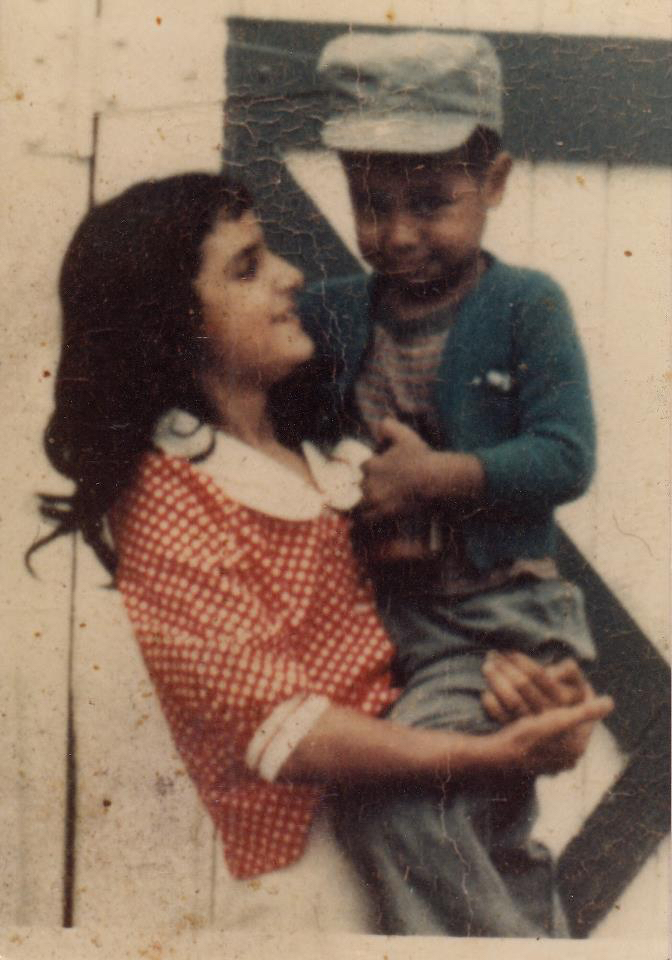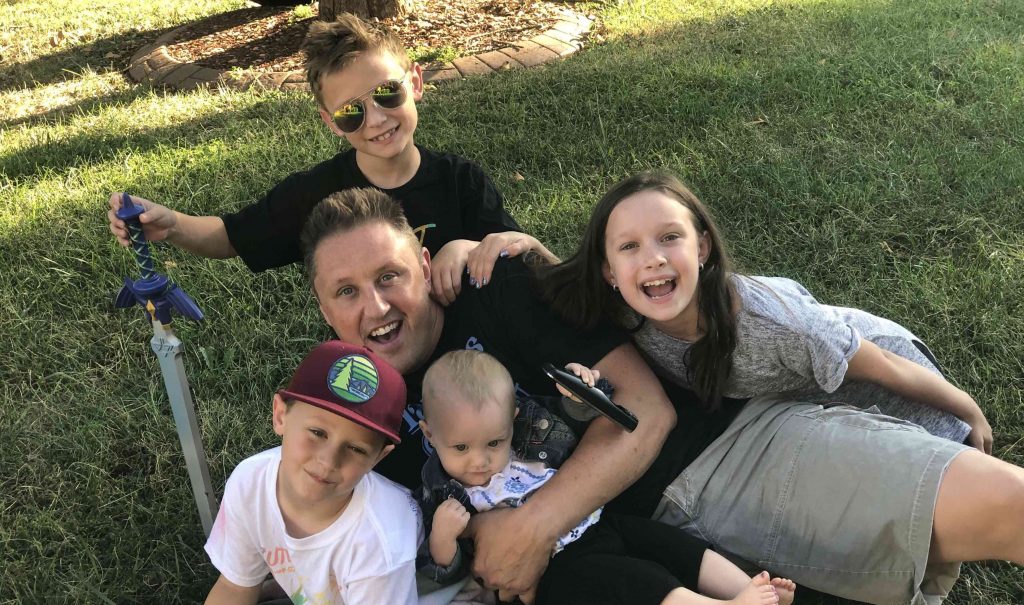ADRIAN: So. Life or Debt on Spike TV. Brilliant concept, love the execution and my wife and I have watched every episode.
Like many other families, we’re always looking for ways to be smarter about the way we spend and save money.
Finance is such an evergreen topic, however since 2008, I feel like we as a nation are more focused on personal finance than ever before. It seems like for many, it’s a struggle, a fight to survive. As parents, we’re personally working towards establishing responsible spending patterns so that when our children are of age, they have the education and are empowered to make the best financial decisions to ensure a comfortable future.
VICTOR: You’re right! The great recession that started in 2007 and some would argue still lingers today has shaken and awakened Americans from the drunken stupor of credit and no savings. America’s savings rate around that time was less than 1%; today it’s up to about 5%. We’re also awakening to several other facts: The American safety net is frayed, wage stagnation is real, inflation is rising faster than wages, and the cost-of-living in general is not keeping pace with those wages. It’s against this backdrop that parents today have to get serious about securing their children’s (and their) financial future. Life or Debt comes at a time when the majority of Americans are living paycheck-to-paycheck and they don’t see a way to get ahead. It is our hope that this show will give them insights and ideas on how to get out of debt.
ADRIAN: Forgive me for asking, but when I watch a show like Life or Debt, I can’t help but wonder more about your background as the host. I think most people want to vet their advisor before acting on their advice – especially when it’s something as sensitive as family and money.
I’ve heard that you’re originally born and raised in Chicago and that times may have been tough. Is that true? What year was this? Can you give us a glimpse into your childhood and what your family endured to survive?

VICTOR: Well, my family is originally from Puerto Rico and they moved here in the late 1950s. With no formal education and they couldn’t speak the language, one could only imagine how hard it must’ve been for them to find employment. I do know how hard it was for them to put food on the table. My parents were both blue-collar workers who stitched together living.
When my mother became disabled, we really felt the pinch of a one-income family. We simply didn’t have a lot of money. Going out to eat, for example, was a foreign concept since we never did it as a family. In fact, because my parents worked long hours and on different shifts, I don’t recall ever sitting down as a family to have dinner.
There were a lot of lean times.
That said, when I work with families I can understand the shame and the anxiety of not being able to afford things for your kids. I understand the acute pain of not knowing how you’re going to make it financially to the next month.
I get it.
ADRIAN: Your situation growing up… did it have any bearing on your decision to pursue business and finance as a career?

VICTOR: Absolutely! Money may not be a motivator, but a lack of money is. I’m often asked what motivated me to go to college and my simple answer is, money (i.e., survival). It motivated me to get and BS in Electrical Engineering (BSEE) and eventually and Masters in Business Administration (MBA).
ADRIAN: Can you tell me a little bit about your business experience and how and where you rose to a CEO position? What kinds of things did you do along the way to make ends meet when times were tougher?
VICTOR: Once I got my first job out of college I was able to help close the financial gap for myself and my parents. I started out in engineering and soon moved up the ranks to product manager where I manage the profit & loss (P&L) of a business unit. From there I moved into a Vice President of Sales position where I had to manage a large territory with 5 regional offices.
Eventually I became CEO of a technology firm where I now had to direct all aspects of the business including: research & development, operations, finance, sales and marketing. Today, as an entrepreneur, I have my own business which I’ve managed to shape and grow for the last 15 years.
This is what I’m most proud of.
When I work with families on Life or Debt who have a struggling business, I offer all the above experience to help then make better business choices.
ADRIAN: I know that you’re married with two kids. As a father, I’m wondering how difficult it was for you to find a work VS. life balance while still keeping your career goals in front of you? Speaking from personal experience, I’d wager that a positive attitude and good sense of humor goes a long way – am I wrong?

VICTOR: It was hard, Adrian, but my wife of 28 years and I made it work. We agreed early on that I would be the bread-winner and she would be a stay-at-home mom.
She will tell you that there were many times where I’d come home late to a cold dinner or that I was traveling 50% of the time just to make ends meet. But I can also say that I never missed a major event with my kids. No matter the cost or the sacrifice, I always a managed to find time to be there when they needed me. It wasn’t easy. And yes, having a positive attitude and letting things roll off your back are two coping mechanisms for the uncertainties of life.
ADRIAN: At what point did you decide to move on from being a CEO and focus more on the strategy behind helping others manage their money?
VICTOR: In 2001 when I decided to strike out on my own, I donated my time to S.C.O.R.E. (Senior Core Of Retired Executives). It was there that I first started helping families who had or wanted to start business. In those intimate one-on-one discussion I would review their business plan and in tandem their financial situation. I’d like to think that the concept of running your family like a business was planted back then before I was consciously aware of the concept itself. When Ugly Brother Studios approached me in 2014 with the Life or Debt concept of running your family like a business, I immediate understood it. It made total sense.
ADRIAN: With Life or Debt… it feels as if it’s the only show on TV teaching families to solve their financial problems using business tactics. I’m beginning to understand why it’s so important to address it as such – but if someone were to ask you WHY? what would you say?
VICTOR: Life or Debt is the only show on television today that doesn’t just give families advice on finances, it goes into their lives and then gives them a plan that makes sense for them. We give them hope with a strategy attached to it. Why is this show important? Too often the best way to learn is through example. It allows viewers to figuratively watch over my shoulders and learn how to implement different tools and ideas to stabilize the finances of their family. By watching others succeed, it is my hope that they’ll be motivated to take action and achieve the same outcome.
ADRIAN: I’ve noticed that the hardest nut to usually crack on the show is the husband. It seems as if the husband always has a hard time when a financial expert comes into their house, digs through their finances and criticizes every cent they spend in front of their wives and a national TV audience.
I can understand their discomfort, as I handle a majority of the bills in our household and quite honestly, don’t always do the best job. It leaves them vulnerable to criticism and potentially takes a toll on their confidence and pride – but isn’t that feeling somewhat antiquated? Shouldn’t husbands, wives or partners be a team; a partnership?
VICTOR: Ha! Great observation! More often than not the wife is more concerned about the finances than the husband. The reasons vary, but to your question, yes, every couple should be a partnership.
I believe men take it harder because my very presence is visual proof of their inability to stabilize the finances of ‘his family’; in ‘his castle’.
That’s hard for a man to admit; that they’ve failed and they need help. Is the idea of a man being solely responsible for the family’s financial stability outdated? Absolutely. It doesn’t matter who brings home the bacon, the reality is that a marriage is a partnership. And both are responsible for how the money is being earned and spent.

ADRIAN: As you know, my blog addresses a lot of parents. My readers are almost split down the middle, mothers and fathers. For those parents out there who might be struggling financially or even just looking for ways to responsibly manage their finances, are there any tips that you could offer them?
VICTOR:
-
Review your spending budget ever 3 months WITH your spouse.
-
Automate your payments, especially your savings so you don’t have to think about it.
-
Never buy a new car and keep the one you have as long as possible
-
If you can, make extra principle payments to your mortgage.
-
Unplug Life: Take a walk in the park, not the mall. Cook a ‘wild’ meal instead of going out. Get off the Internet (or phone) and go fix something around the house. Lastly, stop the movie and read a book and learn. To learn more is to earn more.
ADRIAN: These are amazing tips and advice that I’m positive will help many families out there that are reading and listening – we appreciate your insight, Victor!
EDITOR’S NOTE: ‘Life or Debt‘ airs on Spike TV every Sunday night at 10pm EST. Check it out!





Great article! Thanks for sharing. Can’t believe this is the only show talking about this topic. Victor’s awesome. Great interview!
Thanks for your blog! I found it really helpful.
As a mom, I’m constantly on the lookout for educational tools that help
my 8 year old learn math better, as she struggles most with that
subject. She takes well to the iPad though, as with most kids! 🙂 A
friend recently introduced me to Zap Zap Math, do give it a go… I’d
highly recommend you to test and review it yourself, as it’s helped my
daughter a lot. Some features I’d like to point out include:
– The app’s got really engaging
graphics, characters and game play, so she doesn’t realize how much she
really learns while engaged in ‘play’
– The math practice worksheets are
rich with a universe of educational content, and the app has new
exciting math games being added to it every 2 weeks!
– It’s aligned with Common Core
standards and learning modules. My girl gets her foundation right before
progressing to higher levels, and she’s addicted to getting higher
scores
– I’ve just signed up for the Virtual Assistant Dashboard at https://www.evernote.com/OutboundRedirect.action?dest=https%3A%2F%2Fwww.zapzapmath.com%2Fuser%2Fsignup, where I can easily keep track of her progress, from any place, anytime—parallel to her learning, while she independently learns.
Zap Zap Math can be downloaded across all devices here: http://www.zapzapmath.com/downloads. Hope you and your readers find it useful, as I have for my child.
like Joyce explained I am stunned that someone able to get paid $9755 in four weeks on the computer. did you see this link ….>>>>www.likeme12.tk